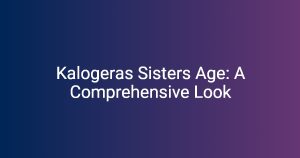Black humor, often deemed as one of the more audacious forms of comedy, draws its strength from the juxtaposition of grim themes and comedic elements. While traditional humor finds its roots in everyday life and lighthearted experiences, black humor treads into the darker aspects of existence, embracing taboos and controversial topics. This article delves deep into jokes black humor, exploring its definition, origins, characteristics, ethical implications, and its presence in today’s digital landscape.
Introduction to Black Humor
Definition of Black Humor
Black humor, commonly referred to as dark comedy, is a genre that satirizes serious, often distressing subjects such as death, disease, and social and political injustices. This style of humor serves as a conduit for comedians and writers to provoke thought and reflection through laughter. Unlike traditional humor that aims to provide joy and relief, black humor invites audiences to chuckle at topics typically deemed inappropriate or distressing.
Origins of Black Humor
The roots of black humor can be traced back to literature and theater over centuries. From the morbid humor in Shakespeare’s plays to the profound satire of Jonathan Swift’s “A Modest Proposal,” the genre has evolved significantly. The development of black humor was further propelled by cinema in the 20th century, where films like “Dr. Strangelove” and “Harold and Maude” became touchstones for this provocative genre of comedy, challenging audiences to reflect on the absurdity of life.
Characteristics of Black Humor
Elements that Define Black Humor
What sets jokes black humor apart are several defining elements, including:
– Use of Taboos: Black humor often tackles sensitive issues that society typically shies away from, such as disease, mortality, and misfortune.
– Dark Themes Contrasted with Comedic Elements: The blend of grim subject matter and humor creates a unique juxtaposition, inviting audiences to explore their comfort zones.
– Absurdity and Irony: Many black humor jokes embrace the absurdity of life, emphasizing irony in dire situations.
Emotional Reactions
The reactions to jokes black humor can be incredibly varied—ranging from laughter to discomfort. Some find solace in the punchy realism of dark jokes, while others may feel offended or shocked. The aspect of shock value is integral in this humor style, pushing boundaries and prompting audiences to confront uncomfortable truths.
The Role of Context in Black Humor
Social and Cultural Considerations
Cultural background plays a significant role in shaping an individual’s perception of black humor. In some societies, jokes that touch upon sensitive issues may be welcomed, while in others, they can lead to social ostracism. Understanding this variability is crucial for crafting effective jokes black humor that resonate with specific audiences.
Timing and Delivery
The effectiveness of black humor often hinges on timely delivery. Context, such as current events or the mood of the audience, greatly influences how a joke is received. Comedians like Louis C.K. and Dave Chappelle have mastered the art of delivering dark humor at just the right moment, cleverly intertwining their commentary with relevant societal issues.
Ethical Implications of Black Humor
The Fine Line Between Humor and Offense
Navigating the delicate balance between humor and offense is a recurring theme when discussing jokes black humor. While some jokes may push societal boundaries in a refreshing way, they can also risk crossing lines that lead to misunderstandings or harm. Historical and contemporary examples, such as instances involving controversial comedians, highlight the potential backlash from a joke poorly received.
Perspectives on Acceptability
Views on the acceptability of black humor vary among comedians, psychologists, and sociologists. While some argue that such humor can serve as a healthy coping mechanism, others emphasize the risk of perpetuating harmful stereotypes or insensitivity. Each perspective suggests different real-life consequences when crossing boundaries in humor.
Notable Figures in Black Humor
Comedians Known for Black Humor
When discussing jokes black humor, certain comedians stand out due to their unique approaches:
– George Carlin: Known for his incisive takes on society, Carlin explored taboo subjects with relentless honesty.
– Dave Chappelle: His ability to address societal issues through dark humor makes him a prominent figure in this genre.
– Other Notable Comedians: Names like Louis C.K. and Ricky Gervais also come to mind, as they regularly tackle controversial topics with offbeat humor.
Impact on Pop Culture
Black humor has left an indelible mark on pop culture, influencing TV shows and movies extensively. Programs like The Addams Family and It’s Always Sunny in Philadelphia utilize this genre to explore themes of death and morality, while music and literature also reflect its influence.
Crafting Effective Black Humor
Techniques and Strategies
Creating impactful jokes black humor requires mastering several techniques:
– Pacing: The rhythm of the joke can intensify the humor or mitigate offense.
– Punchlines: A well-timed punchline can turn a cringe-worthy situation into an uproarious moment.
– Acceptance of Risk: Writers should embrace the inherent risk in crafting dark humor, as audience reactions can vary widely.
Audience Awareness
Comprehending your audience’s sensitivities is vital for effective performance. Not all audiences will have the same threshold for dark topics, so navigating these differences is key to delivering jokes black humor with impact.
Black Humor in the Digital Age
Evolution with Social Media
In today’s digital age, jokes black humor have found new life on social media platforms. Memes and viral content that showcase dark humor have proliferated, making the genre more accessible than ever. Notorious social media moments involving black humor often spark significant debate and discussion.
Communicating Through Online Platforms
Platforms such as Twitter and Reddit have become hotbeds for black humor, allowing anonymity to fuel a robust exchange of ideas. The freedom of expression on such platforms can lead to the rapid sharing of dark jokes that would be deemed controversial in physical interactions.
Conclusion
The Dual Nature of Black Humor
The complexities involved in jokes black humor illustrate both the powerful effects of such humor and the potential pitfalls that come with it. As audiences become more aware of cultural sensitivities, the importance of context, audience, and ethics in constructing black humor takes center stage.
Future of Black Humor
Looking forward, the evolution of black humor seems poised to continue amidst ongoing discussions about censorship, cultural sensitivity, and the parameters of freedom of expression. As societal norms evolve, so too will the interpretations of what makes black humor acceptable or offensive.
| Element | Definition |
|---|---|
| Use of Taboos | Addressing sensitive issues that provoke thought or discomfort. |
| Dark Themes | Incorporating grim subject matter into comedic contexts. |
| Absurdity and Irony | Exploring the absurd nature of life and finding humor in unexpected contrasts. |
| Emotional Reactions | Ranging from laughter to discomfort based on societal boundaries. |
FAQs about Jokes Black Humor
1. What is black humor?
Black humor is a genre of comedy that uses dark and taboo subjects to elicit laughter while provoking thought.
2. Can black humor be harmful?
Yes, black humor can be sensitive; it may offend or hurt individuals, especially if it tackles deeply personal or societal issues.
3. How did black humor originate?
Black humor has roots in literature and theater, evolving significantly through mediums such as film and stand-up comedy.
4. What are some examples of black humor in pop culture?
Shows like The Addams Family and It’s Always Sunny in Philadelphia are popular examples of black humor in entertainment.
5. How do comedians approach black humor?
Comedians utilize timing, delivery, and societal commentary to effectively engage their audiences with black humor.
6. What role does audience context play in black humor?
Understanding the audience’s cultural sensitivities and current societal context is vital to successfully delivering black humor.
7. Is black humor the same as offensive humor?
Not necessarily; while they can overlap, black humor often provokes thought and deeper reflection, whereas offensive humor may lack that depth.
8. What ethical considerations are involved in using black humor?
Usage can straddle the line of insensitivity; comedians must navigate the potential for offense against the intent to provoke thought and laughter.
9. How has social media influenced black humor?
Social media has allowed for the rapid spread and exchange of black humor, giving rise to viral content that prompts wider discussions about its acceptability.
10. Can anyone write black humor effectively?
While anyone can attempt to write black humor, understanding audience perceptions and cultural contexts significantly impacts its effectiveness.




